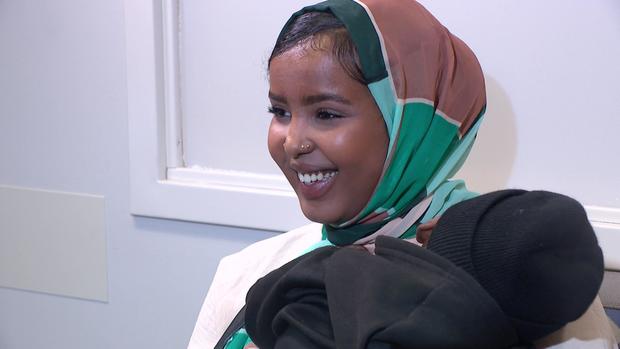New study looks at birth outcomes for Somali Minnesotans, aims to build trust with community
MINNEAPOLIS -- You may have heard this troubling stat from the Centers for Disease Control before: Black women are three times more likely to die from a pregnancy complication.
A local hospital is breaking this down even further, looking at birth outcomes for Somali women.
Somali culture is Minnesota culture. Around 70,000 Minnesotans have Somali heritage.
New mom Sumaya Aidarus is one of them. She spoke of her beloved little boy.
"Just relaxed, calm, easygoing. Definitely makes my life a lot brighter having him here," Aidarus said.
But this is the calm after the storm. Halfway through her pregnancy, an ultrasound showed something was wrong.
"Of course I was in shock, and I was asking the doctor a lot of questions," she said. "My emotions were all over the place."
Her baby had spina bifida, as her doctor, Dr. Saul Snowise explained.
"The spine doesn't form correctly, and it leaves the spine open without skin covering it, and it leaves the nerve roots in the spinal canal open to the amniotic fluid," Snowise said.
She got care at the Midwest Fetal Care Center, a collaboration between Allina Health and Children's Minnesota.
Dr. Snowise suggested they intervene with fetal surgery. That would give her baby the best chance at avoiding brain damage, and being able to walk. She says she hesitated, not knowing anyone in her community who had gone through something like this before. But she eventually agreed.
The staff at the Midwest Fetal Care Center launched a study on cases like Aidarus' - to build trust with the Somali community - and encourage more prenatal care. It's a study Aidarus says is needed.
"In our community, it's hard to get the help you need as a person of color," she said.
"We've already identified significant barrier that we know we can overcome, either with education or with better interpretation, which is a big issue, medical interpretation specifically," said Dr. Snowise. "So this a long-term commitment to the community to try and improve access to care and the quality of care that's given."
The goal is for more outcomes like Aidarus' son, who she says is now sitting up, eating well, and rolling.
The new research survey is open to anyone of Somali descent who has had a baby in the U.S. Sign-up goes until March 17.
For viewers wanting to sign up for the survey, they can do so by emailing mwfetalcare@allina.com.





